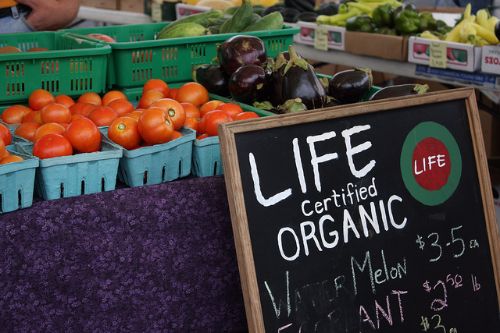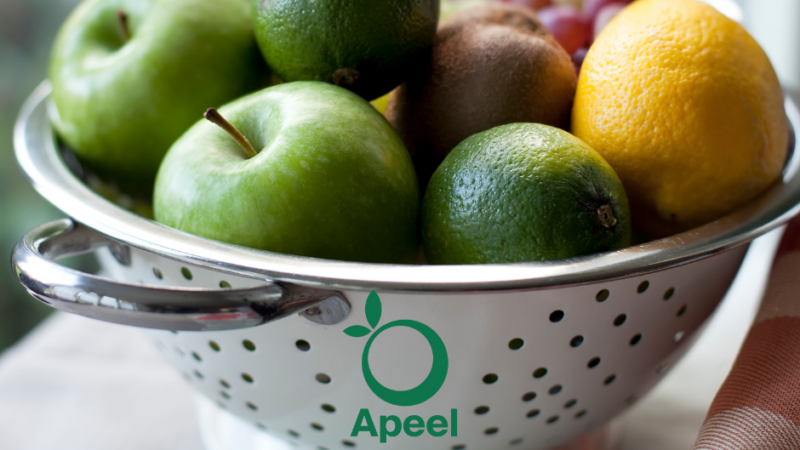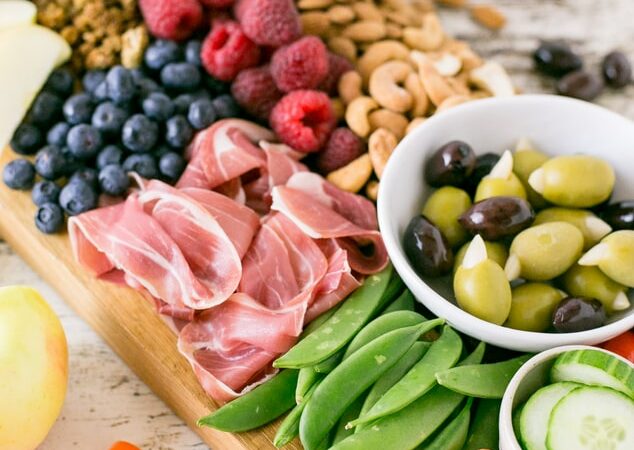How to avoid the ORGANIC lie.

When you load up your shopping cart with organic leafy greens, are you getting more nutritional benefits than consumers on the other side of the produce aisle? More than half of Americans now believe organic food is healthier than conventionally-grown produce, even though there is no evidence to prove it.
Fifty-five percent of Americans said they believed organic food to be more nutritional, a recent Pew Research Center study found — and of the 40% of Americans who say that “some” of the food they buy is organic, 75% do so because they believe it is healthier.
“That is what 20 years of intensive marketing will do,” said Steve Savage, an agriculture expert and writer on farming and sustainability. Organic farming sales hit record highs in 2015, up 11% from the previous year at $43.3 billion, and is now more profitable than traditional farming. Despite the craze for organic food, Savage says there is no proven scientific reason to believe there are health benefits to opting for it. One 2012 study from Stanford University reviewed 237 top papers on the topic and found no evidence of a significant difference in health benefits between produce grown organically versus conventionally grown food.
read more of this article at: http://www.marketwatch.com/story/is-organic-food-really-healthier-2016-12-01
When the Soil Association, a major organic accreditation body in the UK, asked consumers why they buy organic food, 95% of them said their top reason was to avoid pesticides. They, like many people, believe that organic farming involves little to no pesticide use. I hate to burst the bubble, but that’s simply not true. Organic farming, just like other forms of agriculture, still uses pesticides and fungicides to prevent critters from destroying their crops.
Confused?
There are over 20 chemicals commonly used in the growing and processing of organic crops that are approved by the US Organic Standards. And, shockingly, the actual volume usage of pesticides on organic farms is not recorded by the government. Why the government isn’t keeping watch on organic pesticide and fungicide use is a good question, especially considering that many organic pesticides that are also used by conventional farmers are used more intensively than synthetic ones due to their lower levels of effectiveness. According to the National Center for Food and Agricultural Policy, the top two organic fungicides, copper and sulfur, were used at a rate of 4 and 34 pounds per acre in 1971 1. In contrast, the synthetic fungicides only required a rate of 1.6 lbs per acre, less than half the amount of the organic alternatives.
The sad truth is, factory farming is factory farming, whether its organic or conventional. Many large organic farms use pesticides liberally. They’re organic by certification, but you’d never know it if you saw their farming practices. As Michael Pollan, best-selling book author and organic supporter, said in an interview with Organic Gardening, “They’re organic by the letter, not organic in spirit… if most organic consumers went to those places, they would feel they were getting ripped off.”
What makes organic farming different, then? It’s not the use of pesticides, it’s the origin of the pesticides used. Organic pesticides are those that are derived from natural sources and processed lightly if at all before use. This is different than the current pesticides used by conventional agriculture, which are generally synthetic. It has been assumed for years that pesticides that occur naturally (in certain plants, for example) are somehow better for us and the environment than those that have been created by man. As more research is done into their toxicity, however, this simply isn’t true, either. Many natural pesticides have been found to be potential – or serious – health risks.2
In the end, it really depends on exactly what methods are used by crop producers. Both organic and conventional farms vary widely in this respect. Some conventional farms use little to no pesticides. Some organic farms spray their crops twice a month. Of course, some conventional farms spray just as frequently, if not more so, and some organic farms use no pesticides whatsoever.
To really know what you’re in for, it’s best if you know your source, and a great way to do that is to buy locally. Talk to the person behind the crop stand, and ask them about their methods. This is the ONLY way to be certain of what you’re eating.
read more about Organic Myths at https://blogs.scientificamerican.com/science-sushi/httpblogsscientificamericancomscience-sushi20110718mythbusting-101-organic-farming-conventional-agriculture/






